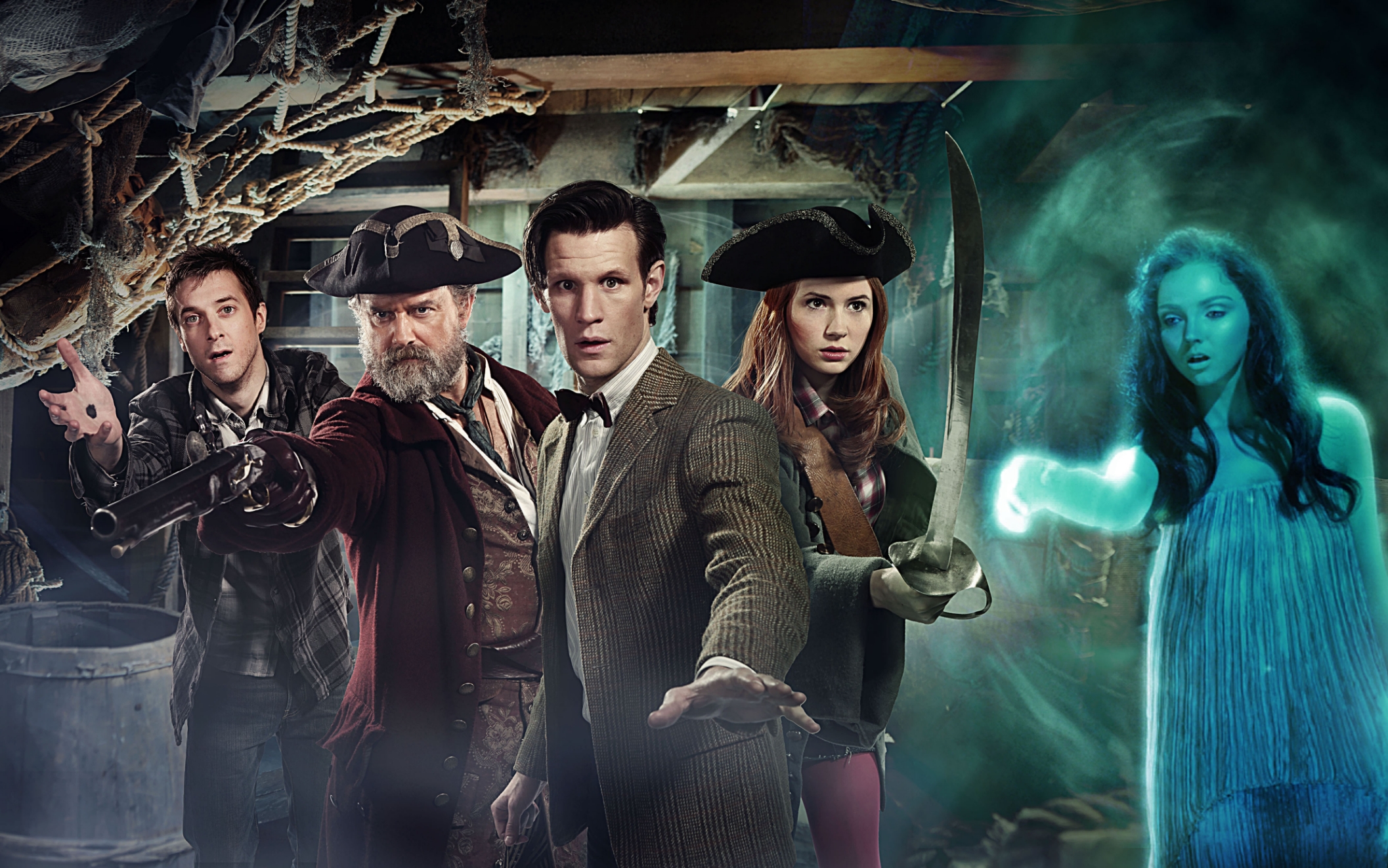; Date: Tue May 17 2011
Tags: Doctor Who »»»»
Okay, why are the black spots on the palm of the right hand, and in the episode before the recording gizmo thingies were punched into the palm of the right hand? Yeah, you noticed that too, eh? What do you think is the reason? I haven't a clue. Leave a comment below.

Anyway, I want to write about the episode, The Curse of the Black Spot. First thing is - it's not a deeply twisted story arc thing, it's an adventure. At the end of S06E02 (see
Review: Doctor Who S06E02: The Day of the Moon) the Doctor basically says, so what that we know there's this scary evil monster race destroying human civilization - let's run away and have some adventures. Maybe he's saying that because the Silence (see Thoughts on The Silence (Doctor Who S06)) made him forget, or maybe because he just wants to run away for awhile, or something. But rather than deal with the real problem, they go find a pirate ship and go AAAARRRRR a lot for an episode. The only Arc thing was the appearance of the borg lady from behind the peep hole.
Basically - it's a good, fun story. Yeah. Go watch it a few times.
The theme here is mirrors, reflections, and gateways between universes. Oh, and a monster that only appears to be a monster until you get to know it and learn that it's really a doctor healing people. Hence, appearances can be deceiving, that person dissolving in front of you into a pile of dust, could just be getting transported to another universe for some serious healing, you never know. The next time someone dissolves in front of you, ask if it's a real danger or not.
The story is one of Doctor Who's attempts at portraying actual history. The original goal of Doctor Who included getting kids interested in history, hence in the First Doctors time they visited with Marco Polo and the Aztecs. This episode they met with Captain Henry Avery (a.k.a.
http://en.wikipedia.org/wiki/Henry_Every) one of the English sea Captains who turned Privateer who turned Pirate in this murky middle ground where it seems the English Crown told certain of their captains to go do dirty deeds. Maybe. Anyway, Captain Every was a legendary Pirate from whom some of the Pirate Legend and Lore was created. This same Captain Avery was mentioned in an early Doctor Who episode, http://en.wikipedia.org/wiki/The_Smugglers .. FWIW. One of the real Captain Every's real exploits was to capture the Ganj-i-Sawai, a heavily armed trading ship belonging to the Mughal emperor Aurangzeb. The Mughal's were the Islamic people who had invaded and taken over large parts of India before the British did the same.
When the Captain Avery we see in the episode is reluctant to throw the treasure overboard, and explains that's the Mughal's Treasure, this is what he referred to.
And, there is a rather large plot hole (or three) in that it would have been simple enough to put all shiny things in boxes or bags rather than smash mirrors or throwing treasure overboard. Okay, it was useful bit of exposition and demonstrating a weakness (supposed) in Captain Avery that he loved the gold and treasure more than his own family. But really it's a flaw in the story.
And while we're talking about flaws - what about when the Captain, Doctor and Amy allow the freaky devil girl take them to the other universe? Shouldn't they be put on the healing beds just like all the others? Why are they instead just dropped on the floor, free to roam around and free their friends? Sigh.
It was funny how ... the Captain went to his Son, Amy went to Rory, each rejoicing in being reunited with their loved one, and the Doctor found the TARDIS overjoyed at being reunited with..uh..his loved one? That was funny until we got to episode S06E04 but I've not written that review yet.











